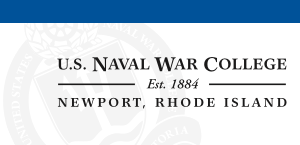Naval War College Review
Abstract
Russia’s actions in Crimea and Ukraine have been momentous in their consequences for the North Atlantic Treaty Organization (NATO). Moscow has instilled new life in the almost seventy-year-old alliance. Doubts about its relevance and utility in the post–Cold War period have faded, at least for the time being, as leaders ponder what Russian leader Vladimir Putin will do next to challenge the alliance. This uncertainty weighs heavily on the heads of state and government of NATO’s twenty-eight members. NATO Secretary General Anders Fogh Rasmussen characterized the situation well when he wrote, “In these turbulent times NATO must be prepared to undertake the full range of missions and to defend Allies against the full range of threats.”
Recommended Citation
Bechná, Zinaida and Thayer, Bradley A.
(2016)
"NATO’s New Role: The Alliance’s Response to a Rising China,"
Naval War College Review: Vol. 69:
No.
3, Article 6.
Available at:
https://digital-commons.usnwc.edu/nwc-review/vol69/iss3/6

